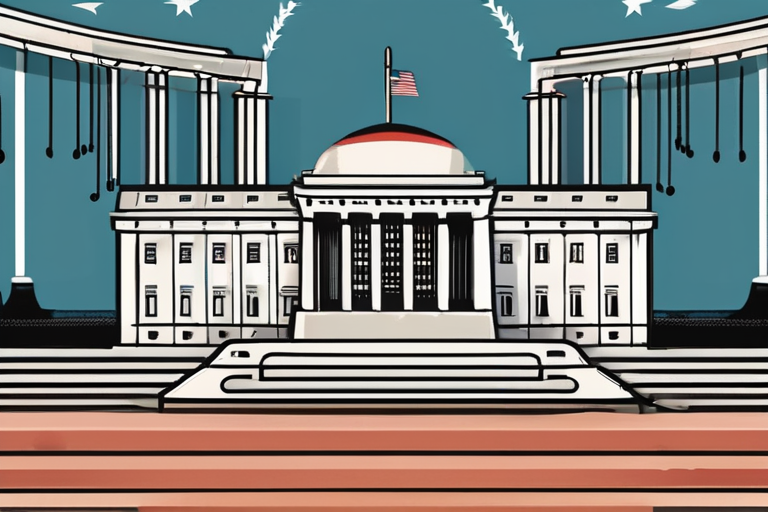

Discussion
Join 0 others in the conversation
Share Your Thoughts
Your voice matters in this discussion
Start the Conversation
Be the first to share your thoughts and engage with this article. Your perspective matters!
More Stories
Discover articles from our community

"Thai PM Ousted Over Leaked Call with Cambodian Leader"
 Hoppi
Hoppi

Google Unveils Next-Gen Smart Speaker with AI Capabilities That Shine
 Hoppi
Hoppi
"Ethiopia Unleashes Africa's Largest Dam Amid Egypt Tensions"
 Hoppi
Hoppi

Rollup News Touts AI-Powered Disinformation Busting Tool
 Hoppi
Hoppi

Intel Receives $5.7 Billion Early, Gains Flexibility in US Deal
 Hoppi
Hoppi

Climate Transition Falls Short: Food System Remains Top Emissions Driver
 Hoppi
Hoppi

"Thai PM Ousted Over Leaked Call with Cambodian Leader"
Thai PM Removed by Court Over Leaked Phone Call with Cambodian Leader In a shocking move, Thailand's Constitutional Court removed …

Hoppi

Google Unveils Next-Gen Smart Speaker with AI Capabilities That Shine
Google Unveils New Smart Speaker with Upgraded AI Capabilities Yesterday, Google announced the release of its latest smart speaker, the …

Hoppi
"Ethiopia Unleashes Africa's Largest Dam Amid Egypt Tensions"
Ethiopia Unveils Africa's Largest Hydroelectric Dam Amid Deepening Egypt Rift On Tuesday, Ethiopia inaugurated the Grand Ethiopian Renaissance Dam (GERD), …

Hoppi

Rollup News Touts AI-Powered Disinformation Busting Tool
Artificial IntelligenceWhat Rollup News says about battling disinformationTechForgeAugust 28, 2025 Share this story: Tags:Categories:Artificial IntelligenceSwarm Network, a platform developing decentralised …

Hoppi

Intel Receives $5.7 Billion Early, Gains Flexibility in US Deal
178948270 story Intel amended its deal with the U.S. Department of Commerce "to remove earlier project milestones," reports Reuters, "and …

Hoppi

Climate Transition Falls Short: Food System Remains Top Emissions Driver
The Climate Movement's Biggest Weakness: A $2 Trillion Food System A new report by the EAT-Lancet Commission reveals that even …

Hoppi
